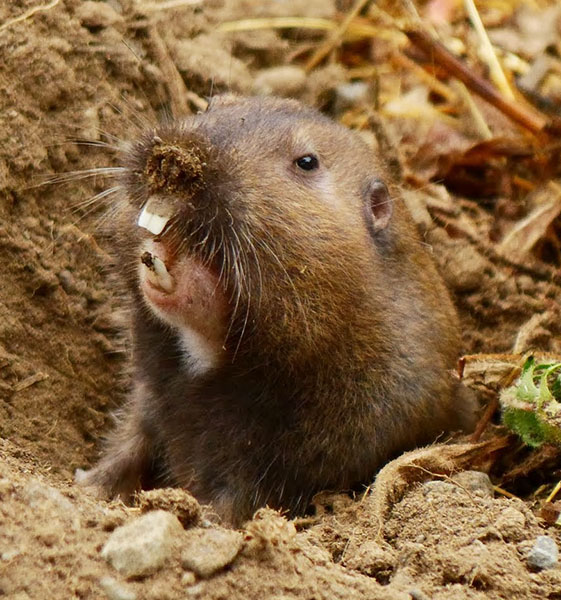By Melissa Wagoner
Fighting off invasive pests – those insects, weeds and animals that aren’t a part of a gardener’s original plan – can turn a beautiful garden into a war zone filled with toxic chemicals. But it doesn’t have to be that way.
“As a head gardener it is my responsibility to focus on IPM, integrated pest management, which really means monitoring for bugs and other pests in the garden and or greenhouse,” Heather Desmarteau-Fast – owner of Stamen and Pistil in Silverton and head gardener at a private estate in Wilsonville – said. “I choose to do this naturally for my health and the health of those I work with. This is really a balance, and it takes a keen eye to see pests before they become a real issue.”
Observation and patience are key, according to Desmarteau-Fast who said, “Just because you see an infestation of something, doesn’t mean your garden is done for. Take time to monitor the infestation. Are there any beneficial insects eating the bad ones?”
If not, it might be time to introduce them, because many insects – including ladybugs, lacewings, nematodes and praying mantis – can be purchased at a garden store, then released into a home garden to boost populations.
“Lacewings will eat aphids, thrips, white fly and spider mites in their juvenile stages,” Desmarteau-Fast said. “Lady bugs eat aphids and some of the more specific lady bugs such as Cryptolaemus will even eat mealybugs!”
And adding beneficial plants can also be helpful as well.
“I like to plant Marigolds in between my tomato plants to keep aphids at bay,” Desmarteau-Fast said. Adding, that basil, planted next to cabbage, can also deter flea beetles.
But if strategic planting and beneficial insects still aren’t enough, then it may be time to spray the garden – with water.
“It is easy to remove, say aphids, from a crop by simply spraying them with… a hard stream,” Desmarteau-Fast pointed out.
Neem oil – a vegetable oil made from the fruits and seeds of the neem tree – is another good option, as is a spritz of soapy water.
“Soapy water kills any bug,” Stephanie Hazen – an OSU Master Gardener – verified. “Let them die and then rinse the plant off.”
A retired veterinarian, Hazen also uses the IPM approach, implementing raised beds made of repurposed stock tanks to deter rabbits and gophers and fencing to keep out deer.
“All these little experiments are fascinating,” she said, describing her use of plastic laundry baskets upended over milkweed plants for the protection of monarch butterflies as just one of the ways she gardens with nature rather than against it.
“I think about getting along, covering your plant or choosing a different plant,” she said. “And choose something native, because it’s meant to be here.”
But she’s not just talking about plants, Hazen likes to encourage native animals – birds, pollinating insects and even mammals like coyotes – to populate the areas in and around her garden as well.
“Mostly we just create habitats,” she said, listing the brush she has left undisturbed beside the creek so that ground birds have a place to nest, the fallen logs which are now adorned with ferns and the snags that are filled with woodpecker holes as just a few of the ways she has let nature have its way.
“I’m happy to see deer,” she said. “I’m happy to see owls.”
She’s even happy to see rabbits – which can no longer devastate her garden thanks to the protective raised beds.
“Rabbits are part of the food chain,” she said, “and they’re fun to watch.”
